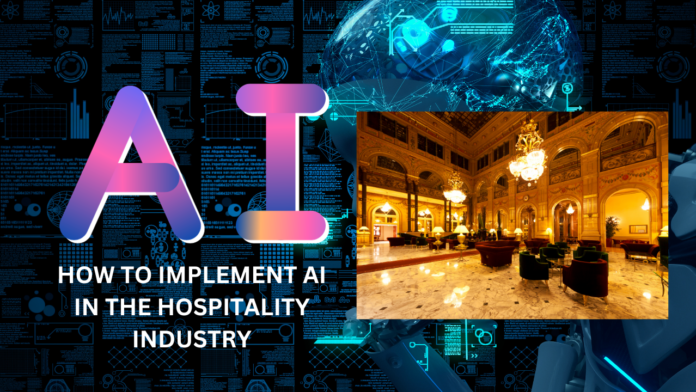Introduction
The hospitality industry has always been at the forefront of adopting new technologies to improve customer experience and operational efficiency. With the advent of Artificial Intelligence (AI), the sector is once again poised for a revolutionary transformation. Implementing AI in hospitality isn’t just a tech-savvy move; it’s rapidly becoming a necessity to maintain competitive edge.
This article aims to provide a comprehensive guide on how to effectively implement AI within the hospitality industry, covering areas such as customer service, data analysis, and automating routine tasks.
Importance of AI in Hospitality
Enhanced Customer Experience
- Personalization: Tailoring services to individual guest preferences.
- Chatbots: 24/7 customer service without human intervention.
Operational Efficiency
- Automated Check-In/Check-Out: Reducing manpower and improving efficiency.
- Predictive Maintenance: AI can forecast when machines need servicing.
Data-Driven Decisions
- AI algorithms can analyze consumer behavior to optimize pricing and offers.
- Sentiment analysis on reviews to improve services.
Steps to Implement AI
Initial Assessment and Planning
- Scope Assessment: Identify the areas within your operation where AI could be most beneficial.
- Feasibility Study: Assess the technical and financial aspects of the implementation.
- Vendor Selection: Choose the right technology partners.
Development and Testing
- Pilot Testing: Run a small-scale test to evaluate the technology’s impact.
- Data Training: Feed the AI algorithms with sufficient data for accurate performance.
- Iteration: Refine the system based on initial results.
Full-Scale Implementation
- Integration: Ensure that the AI system works seamlessly with existing infrastructures.
- Staff Training: Educate employees on how to use the new system effectively.
- Monitoring: Keep an eye on system performance and make adjustments as needed.
Post-Implementation
- Review: Regularly assess the system’s performance and ROI.
- Updates and Upgrades: Keep the software up-to-date to benefit from the latest features and improvements.
- Feedback Loop: Use customer and staff feedback for continuous improvement.
Case Studies
Hilton’s “Connie”
- A concierge robot that assists guests in navigating the hotel and offers suggestions for activities.
Chatbots
- Handles customer service inquiries, and can even perform tasks like room bookings.
Potential Challenges
- Data Security: Ensuring the protection of guest data is crucial.
- Cost: AI systems require a significant financial investment.
- Adaptability: The industry and technology are always evolving; your system should be adaptable.
Conclusion
The application of AI in the hospitality industry offers a myriad of benefits ranging from enhanced customer experience to operational efficiency. The key to a successful implementation lies in careful planning, pilot testing, and ongoing monitoring.
Challenges such as data security and the cost of investment should be meticulously addressed. As AI technology continues to evolve, the hospitality industry must adapt quickly to remain competitive and meet the ever-changing demands of consumers.
Discover more from Hospitality Hub Live
Subscribe to get the latest posts sent to your email.





